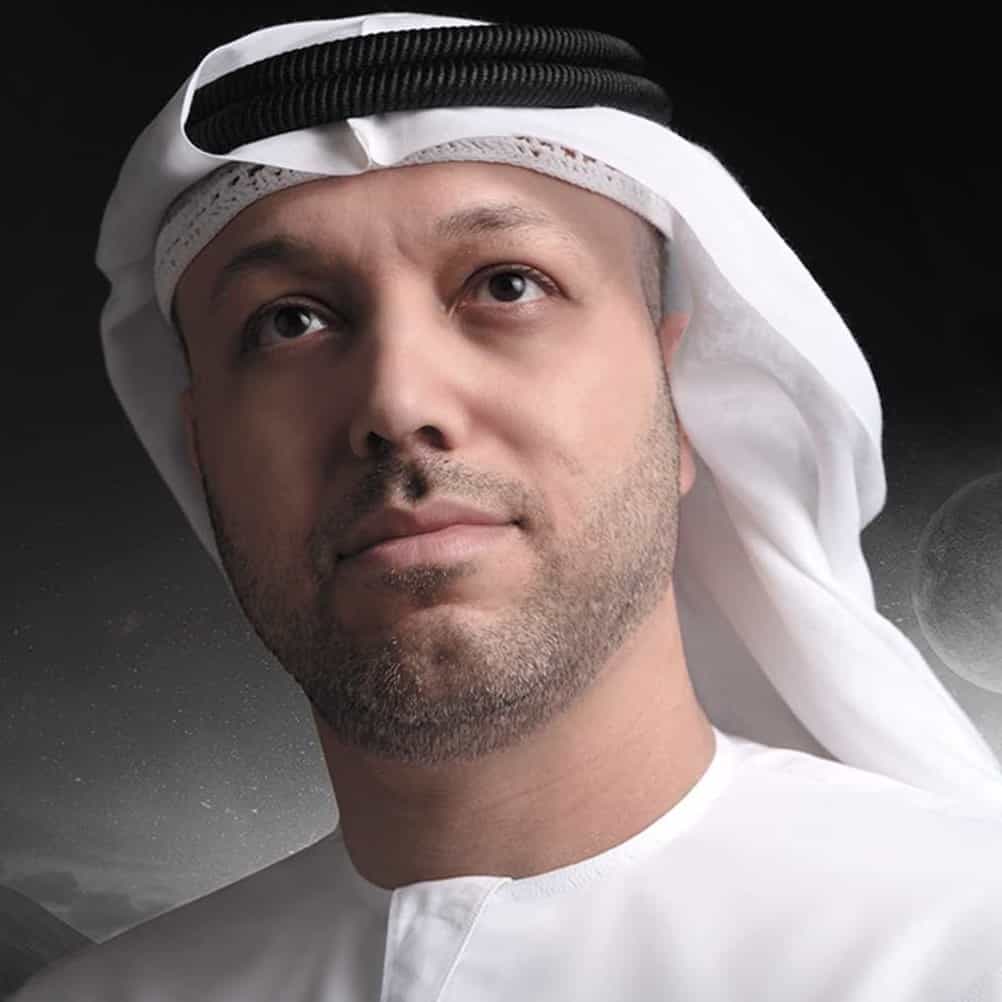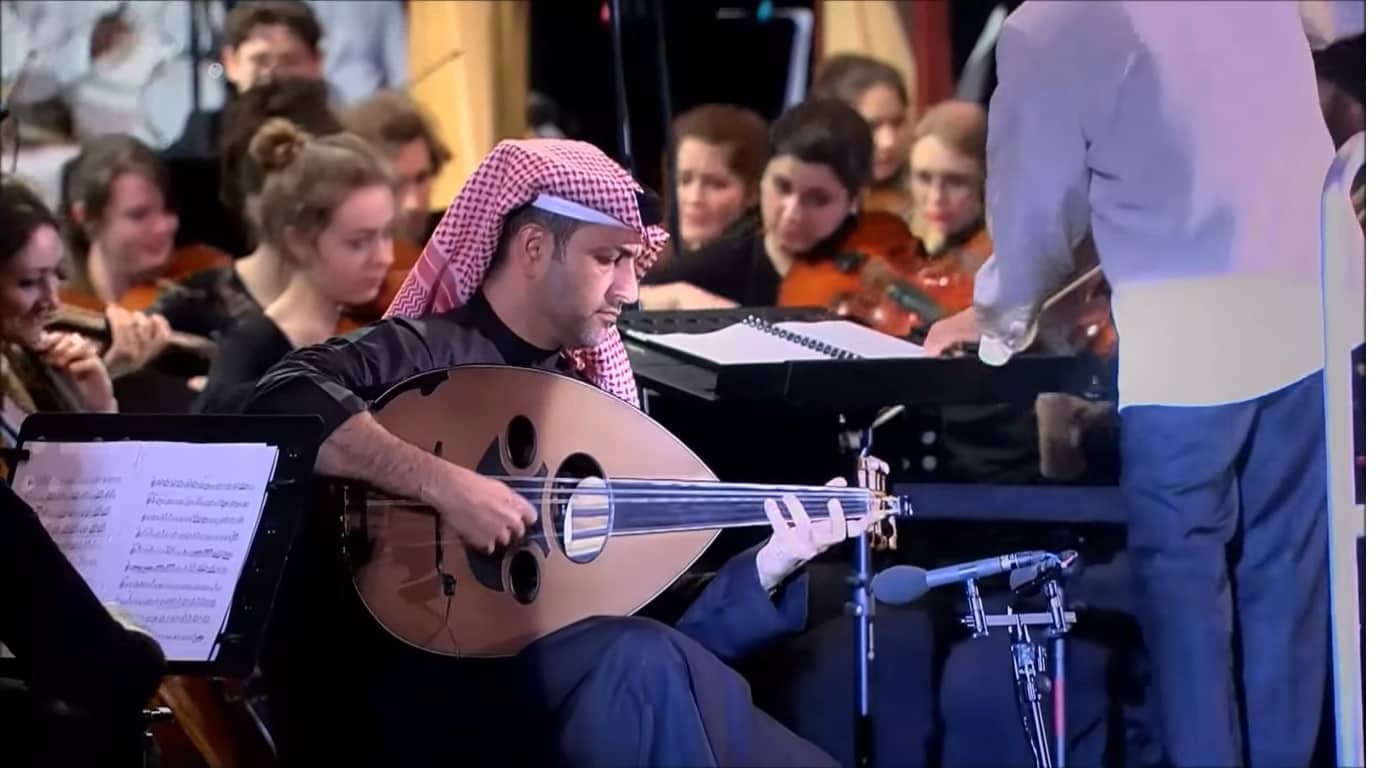Creativity is rarely viewed through the lens of openness. If we do so, we can easily see how the UAE’s far-sighted and rather rhythmic alignment with others has had a great impact on the intercultural convergence it has made possible across creative industries.
The UAE threw up a new model to catalyze creative growth in the music scene, through its ‘jazzy’ venture to provide a conducive environment. They are developed around ideas of acceptance and plurality, in which celebrating cultural and creative diversity becomes a national norm, resulting in what could be described as ‘multi-cultural fusion’ art.
A futuristic incubator for musical fusion
Expo 2020 Dubai brought together people from 192 nations representing a multitude of cultures, creating a platform where openness helped expedite the country’s futuristic vision to bring peoples of the world closer together and enable them to meet and learn from one another, further driving the development of creativity, music, and arts. For many, it provided a life-changing experience.
Ammar Ashkar, a rising Syrian musical talent who found Dubai a haven to advance his musical career, told the Emirates News Agency (WAM) that the “the UAE’s harmonious ambience of acceptance and intercultural fusion served as an incubator”, through which he tested his musical limits and came out a better artist.
Asked about his experience during Expo 2020 Dubai, he said, “At Expo, I got to explore the musical heritage of many nations, and it was a highly rewarding experience. While living in Dubai, and through my performances in the UAE, I found that the culture of tolerance here is a force of immeasurable good, especially since music and arts help better humanity and pave the way for a more peaceful future.”
Forging national talents into multi-national creative genius

“I have also seen first-hand how this culture that the UAE continues to instil with dedication helped foster remarkable talents. The likes of renowned Emirati composer Ihab Darwish, Mohammed Fairouz [an Emirati American classical operatic and orchestral composer], Faisal Al Saari, as well as many greats who bring their country immense pride, have collaborated with many world-celebrated musicians across a wide variety of genres, offering humanity timeless tunes and endless joy,” Ashkar went on to say.
The UAE’s own pride and joy, Emirati composer and oud virtuoso Faisal Al Saari is perhaps a prime example of the fruits of the country’s openness with his flair for remoulding his musical spirit to integrate and blend with other genres and cultures. In 2016, Al Saari was commissioned to work with Germany’s 120-piece Gustav Mahler Jugendorchester, to compose an iconic multi-cultural orchestral piece to mark the then-under-construction Louvre Abu Dhabi. Titled ‘Zayed’s Dream’, referencing the UAE’s late Founding Father, Sheikh Zayed bin Sultan Al Nahyan, the work combined the UAE’s unique traditional melodies and rhythms, backed by a 10-piece Emirati percussion section, with Western orchestral musical elements.
In an interview with a local English daily, Al Saari had elaborated on the reason behind naming the piece: “Anything that makes us successful and unique would be a dream for Zayed – that’s why I called it Zayed’s Dream”. His statement truly epitomises how the UAE people, following in the footsteps of their Founding Father, practised acceptance of others and learnt to appreciate the world’s diversity, and empowered their country to rise from the sand and take shape as a world-leading modern and vibrant country that welcomes and celebrates brilliance in all its shapes and colours.
Abu Dhabi, a creative city of music
In the UAE capital, the country’s pioneering initiatives and programmes earned Abu Dhabi the ‘City of Music’ title, which the UNESCO Creative Cities Network bestows on cities that “have identified creativity as a strategic factor for sustainable urban development”.
Ashkar, the Syrian musician, who is quite passionate about fusion music that integrates both Arab and Western elements, referenced Lebanese pianist and composer Tarek Yamani whose third album Peninsular was commissioned by Abu Dhabi to be premiered at the 2017 Abu Dhabi Festival.
“Tarek Yamani’s album, Peninsular, and his subsequent book, ‘The Percussion Ensemble of the Arabian Peninsula’, were ground-breaking to say the least. In Peninsular, he presented a successful endeavour to weave Khaleeji [Arabian Gulf] rhythms within African American jazz structures in his incredibly creative compositions. Meanwhile, his book, which saw incredible support from the Abu Dhabi Music and Arts Foundation [ADMAF], is a one-of-a-kind text that offers specialised insights into the rich musical history of the Gulf countries.”
The UNESCO Creative Cities Network referred to Abu Dhabi’s cultural and creative sector as a “key driver of social cohesion, economic growth and diversification” in the emirate, with its music sector cradling over 600 music enterprises and over 4,000 cultural professionals. The UAE capital also hosts several establishments that contributed to enriching its thriving creative landscape, such as the Cultural Foundation, Bait Al Oud, a centre specialising in the study and teaching of classical Arabic music, led by Iraqi oud maestro and UNESCO Artist for Peace Naseer Shamma, New York University Abu Dhabi’s Arts Centre and Music programme, and Berklee Abu Dhabi, in addition to musical events, including Abu Dhabi Festival and Abu Dhabi-Classics.
From Openness to Musical Universality
One can view these as the by-products of the UAE’s inherent value of tolerance, which has empowered it to grow through recognising such talents, and push to cultivate new music that combines traditional, folk, and contemporary elements from the Eastern and Western orbits to create new captivating constellations.
Unlike with the many short-lived music genres and trends that continue to sprout, the UAE is attempting to usher in a creative revolution, whereby the music created would resonate with larger audiences across different segments and cultures, offering familiar-cum-unfamiliar exotic sound that can have a lasting and impactful lifespan.
What the Arab world had previously seen as deviations from the norm, the UAE has sought to embrace and experiment with, despite being staunch preservers of their heritage and traditions. This best shows in Dubai being the host of rock and metal events such as Dubai Desert Rock Festival and its newly launched Dubai Metal Fest.
One must give credit to the UAE’s openness, a simple, yet extremely effective policy which entails a form of fearlessness and continues to serve as the true backbone of the UAE’s soft power.








